Expert says three doses of Covid jab should be ‘fully vaccinated’
More countries are changing the definition of “fully vaccinated” to include booster shots, and there are calls for Australia to follow suit.
Australia needs to change the definition of “fully vaccinated” to include booster shots if it wants to stave off a fourth coronavirus wave, one expert claims.
Professor Raina MacIntyre from the UNSW’s Kirby Institute, a member of the OzSage group, has warned high uptake of booster shots, along with mass vaccination of young children aged five to 11, will be needed if Australia is to avoid the “same fate” as Europe.
Writing in The Conversation on Tuesday, she cited NSW modelling from OzSage predicting an increase in cases from mid-December with a peak in February 2022 despite already high vaccination rates.
OzSage has previously come under fire for reportedly inaccurate, alarmist predictions.
“The currently dominant Delta variant raises the stakes because it is far more contagious and has some potential to escape the protection offered by vaccines,” Prof MacIntyre wrote.
“This means we need very high rates of vaccination across whole populations – probably over 90 per cent of everyone vaccinated including younger children – to control the virus. In addition, we need to start thinking about ‘fully vaccinated’ being triple, not double, vaccinated.”
As evidence grows of the waning efficacy of Covid-19 vaccines, more countries are changing the definition of “fully vaccinated” to include a third booster shot.
Australia has not yet followed suit, but NSW and Victoria have hinted they are leaning in that direction.
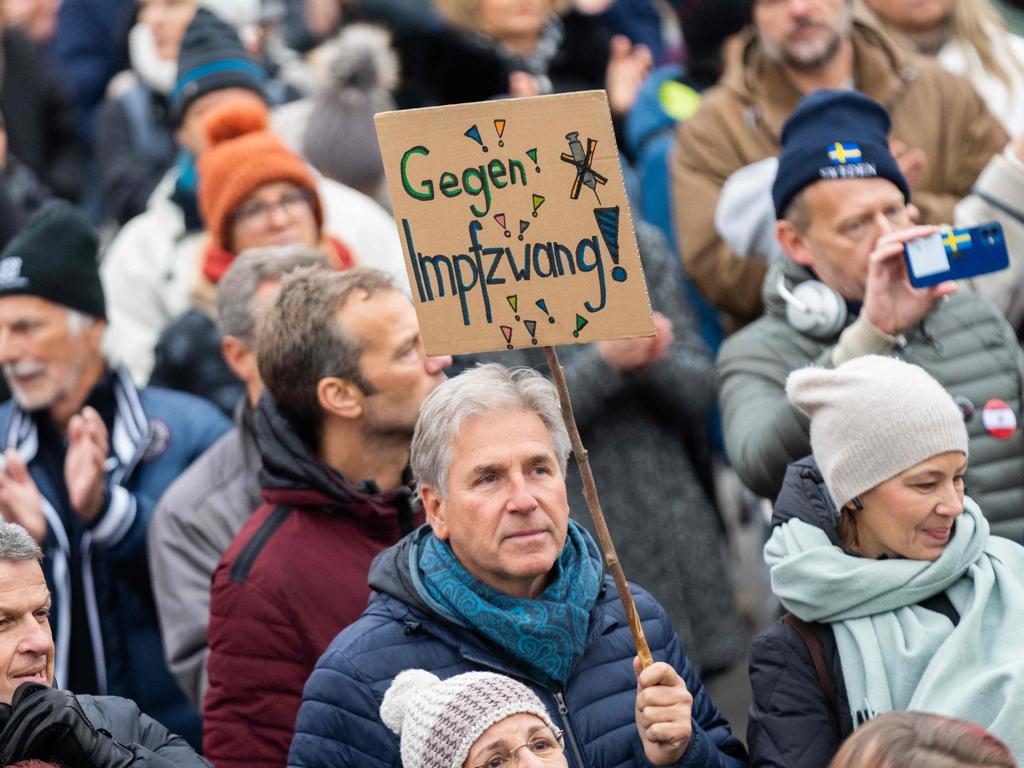
UK Prime Minister Boris Johnson last week confirmed a third jab would be required for the country’s vaccine pass.
“Over time, the protection from two jabs starts to wane,” he told a press conference. “The third jab boosts protection back up to over 90 per cent against symptomatic infection.”
That came after French President Emmanuel Macron warned boosters would be mandatory for over-65s in order to travel or visit restaurants or museums.
“From December 15, you will need to provide proof of a booster jab to extend the validity of your health pass,” he said in a TV address.
“We have not finished with the pandemic. [Evidence shows after six months] immunity decreases and therefore the risk of developing a serious form [of Covid] increases. The solution to this decrease in immunity is an additional vaccine shot.”
Grappling with another wave of Covid-19 cases, countries across Europe have reintroduced lockdowns and other restrictions in recent weeks, sparking mass protests.
Many have begun rolling out boosters, but only 3.7 per cent of the continent’s population has received a third shot, according to AFP.
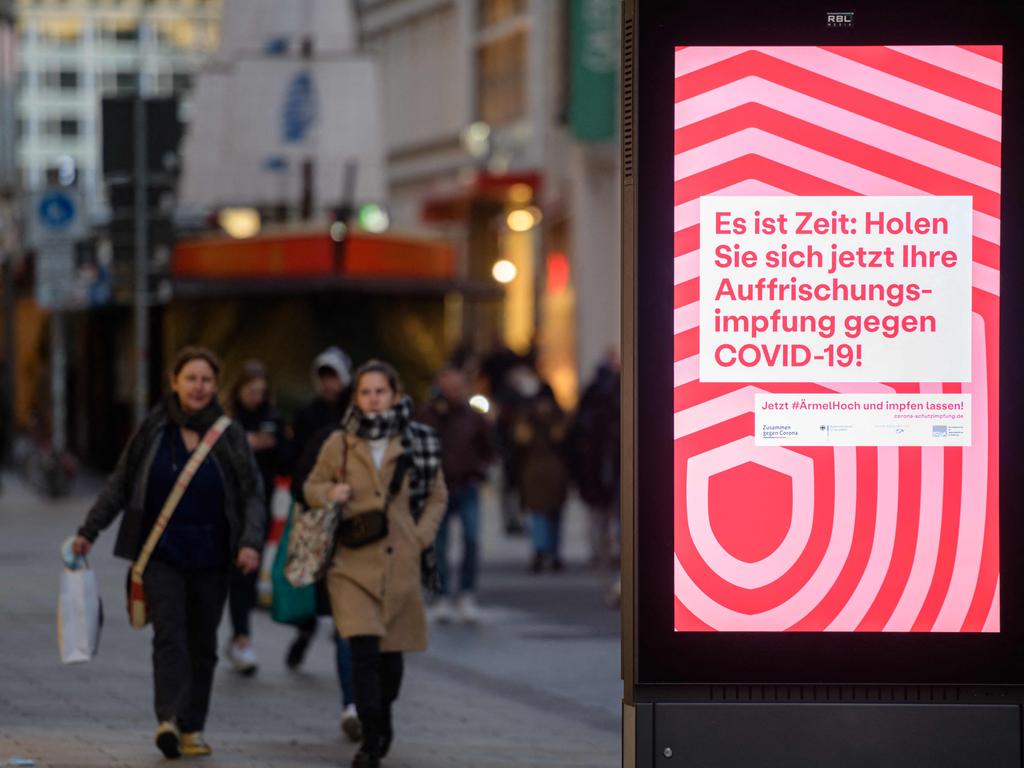
Austria, the first country in Europe to introduce a blanket mandatory vaccination policy, says people who refuse to get vaccinated from next year will face fines of up to €3600 ($5600), while people who refuse a booster could be fined up to €1500 ($2300).
Israel, which led the way in mass vaccinations early, was the first country to make boosters a requirement, announcing last month that people who did not get their third shot would lose their fully vaccinated status.
As of October 3, the government changed the criteria for the so-called “green pass”, shortening its validity to expire six months after the second dose.
“Now is the time to be strict about the green pass, be cautious and not become complacent,” Israeli Prime Minister Naftali Bennett said.
Bahrain announced a similar policy not long after.
People who are eligible for their third dose will now have their status on the kingdom’s BeAware mobile app downgraded “from the green shield to the yellow shield until they opt to receive a booster shot”, limiting their movements and activities.
A spokesperson for Bahrain’s Health Ministry said in a statement that from July 1 to October 1, “out of those who have been infected with Covid-19, 52 per cent were among those who did not take a booster shot”.
“Only 3 per cent were among those who received the booster shot,” Dr Manaf Al Qahtani said. “It is therefore clear that booster shots increase immunity.”
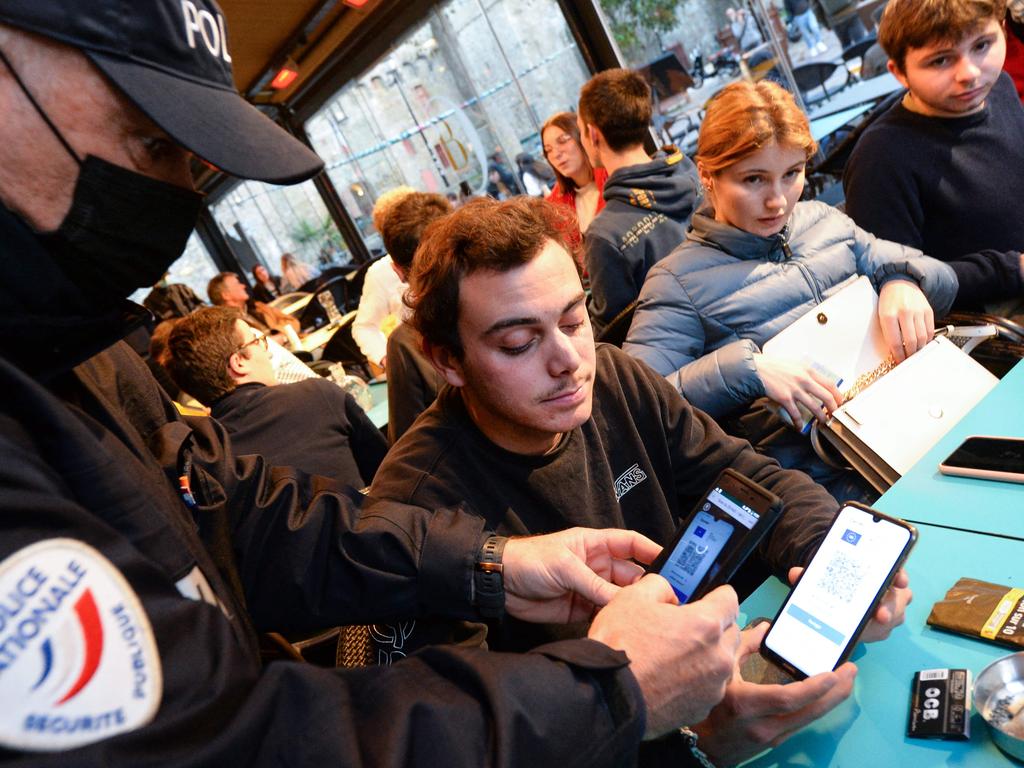
Officials in the United States, including Centres for Disease Control and Prevention (CDC) director Rochelle Walensky and National Institute of Allergy and Infectious Diseases director Anthony Fauci, have hinted that the definition of fully vaccinated may change.
In a TV interview over the weekend, Dr Fauci, the White House chief medical adviser, encouraged everyone to “get boosted” but said the definition of fully vaccinated would not change yet.
“If you look at the data that we have, fully vaccinated right now, by definition, is the original two doses [of] … Pfizer and Moderna and a single dose with [the one-shot Johnson & Johnson],” he told ABC’s This Week.
“We’ll continue to follow the data, because right now when we’re boosting people, what we’re doing is following them. We’re going to see what the durability of that protection is, and as we always do, you just follow and let the data guide your policy and let the data guide your recommendations.”
In a separate interview, Dr Fauci left the door open to changing the definition.
“People should not be put off by the fact that, as time goes by, and we learn more and more about the protection, that we might modify the guidelines,” he told CNN’s State of the Union.
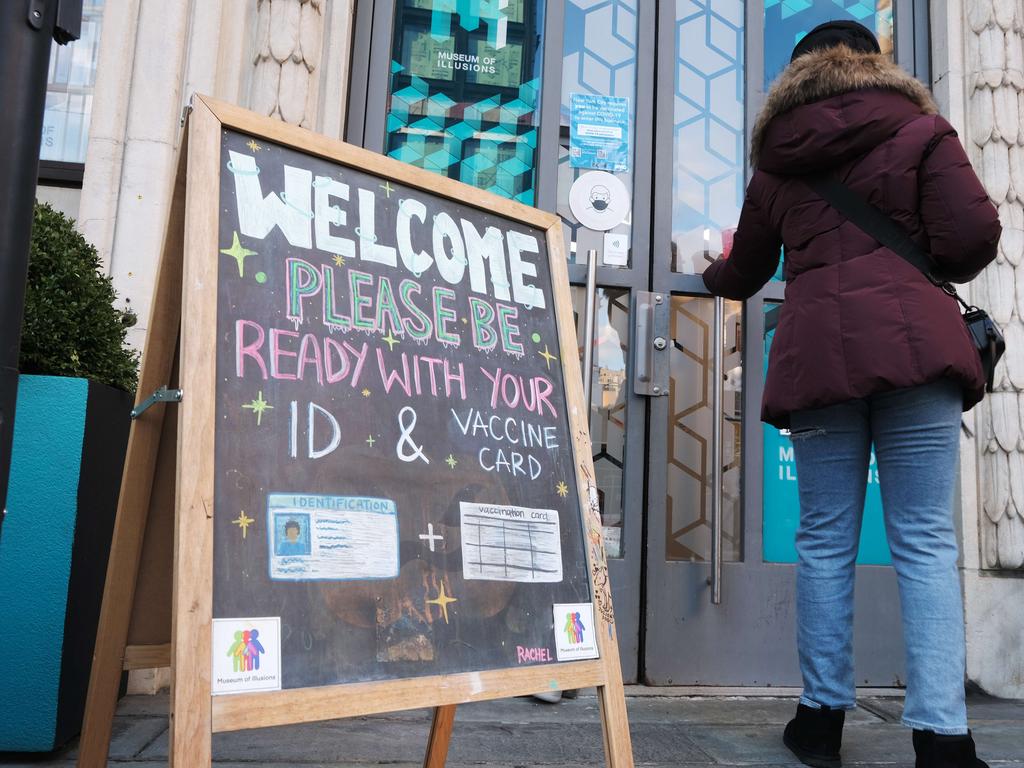
Former Food and Drug Administration commissioner Scott Gottlieb, who now sits on the board of Pfizer, said on Sunday he expects the CDC will change the definition next year.
“I think at some point they’re going to, but not this year,” Mr Gottlieb told CBS.
“I think eventually this will be considered the three-dose vaccine, but I would be hard-pressed to believe CDC is going to make that recommendation any time soon, in part because of this debate about whether or not younger people who are less risk should be receiving that third dose in states where governors are looking to do this, and I think some local communities will do it.”
Dr. Fauci: “Boosters are extremely important – we believe boosters will likely give you the highest level of protection yet.â€
— The White House (@WhiteHouse) November 24, 2021
Visit https://t.co/S2DQV6MlBv to find out more and get your booster shot now. pic.twitter.com/yBPOZmc5eY
Two US states, New Mexico and Connecticut, have already said they will be changing the definition.
“We are analysing what we can do to create those incentives – and potentially mandates – for making sure that people are fully vaccinated, which means three vaccines,” New Mexico Governor Michelle Grisham said last week.
Connecticut Governor Ned Lamont said, “From my point of view, if you were vaccinated more than six months ago, you’re not fully vaccinated.”
Earlier this month, NSW Jobs Minister Stuart Ayres said all residents “have a responsibility” to get a booster shot if they “want to remain in work” and avoid another lockdown.
“So look at your little green certificate – your vaccination date is up there in the top right hand corner, mark your calendar six months from that date and go and get your booster shot,” Mr Ayres said.
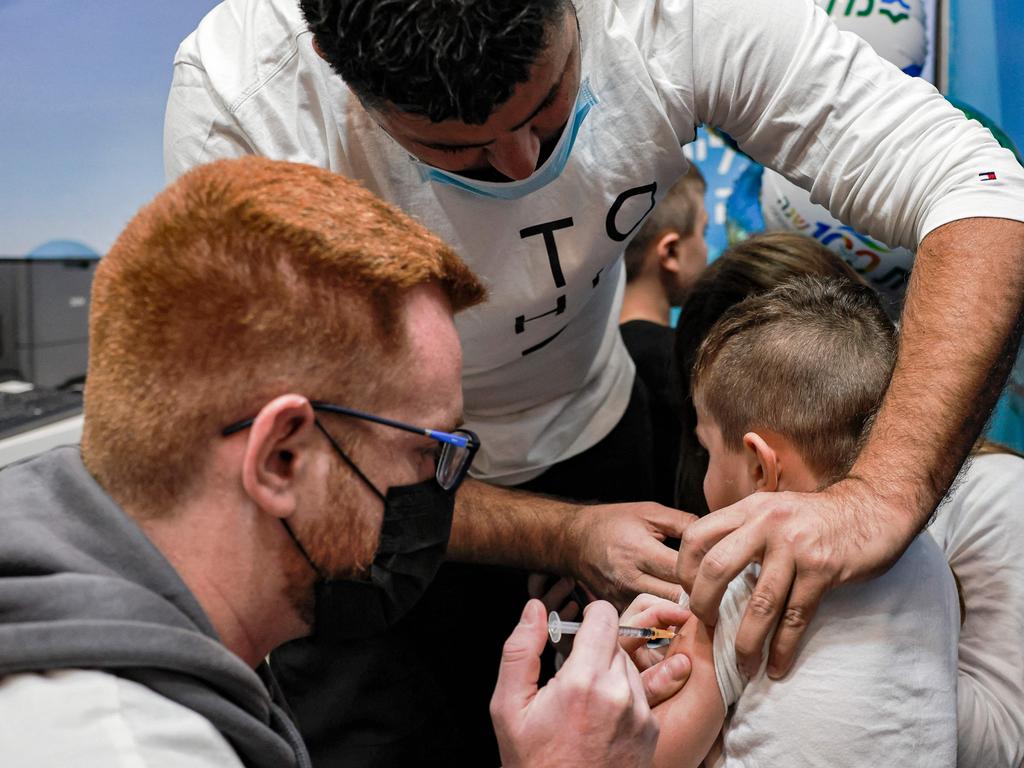
That came after Victorian Premier Daniel Andrews last month hinted boosters would be required to maintain fully vaccinated freedoms in the state.
Mr Andrews suggested that going forward, life for the vaccinated would “be about the maintenance of your vaccination status”.
“I hope, and we’ll play our part in this, like a month before your six months is up, then you will get a message and your vaccination certificate, the thing that gets you the green tick, you’ll be prompted to go and book a time to go and have your booster shot,” Mr Andrews told reporters.
Australia’s federal vaccine advisory body, the Australian Technical Advisory Group on Immunisation (ATAGI), currently recommends booster doses for people aged 18 and over.
Health Minister Greg Hunt has repeatedly stressed that “if you’re double vaccinated, you’re fully vaccinated” and that boosters would be optional for “additional protection”.
But at a press conference in October, he would not rule out a scenario where Australians would be required to be “up-to-date” with their boosters for the purposes of vaccine passports, saying it was “a fair question” with the “science to flow over the coming months”, and that the government “will continue to follow the medical advice”.
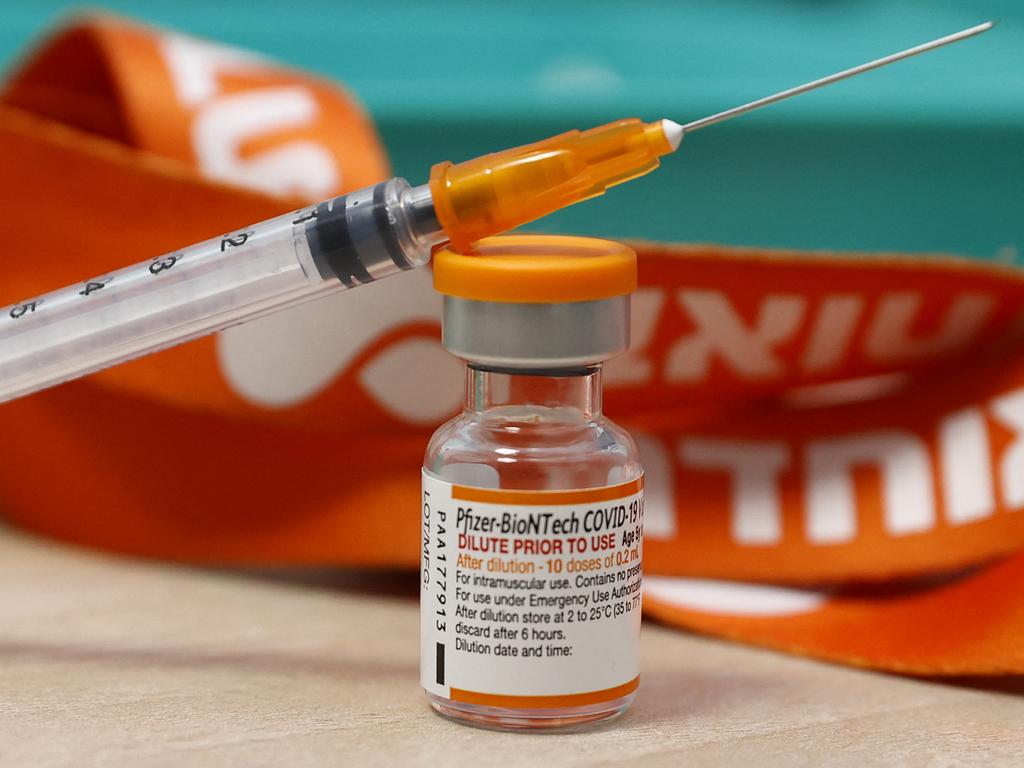
A Health Department spokeswoman told news.com.au last month that the current medical advice was “you are fully vaccinated at two doses”.
But she said ATAGI would provide further advice “including whether a booster dose is required to maintain protection against Covid-19 and, if so, how often it should be administered”.
Pfizer is the vaccine approved by the Therapeutic Goods Administration (TGA) and recommended by ATAGI for booster shots, regardless of the vaccine received for the first or second dose.
People can receive AstraZeneca if they are unable to have Pfizer for medical reasons, or if they previously had two doses of AstraZeneca.
Side effects are similar following a booster dose to the first two doses.
“There is limited data on serious side effects such as myocarditis and pericarditis following a Pfizer booster dose,” the Health Department website says.
“Evidence from Israel suggests that myocarditis and pericarditis are not more common after the booster dose, compared with the second dose. This side effect is being monitored closely. ATAGI will continue to review the risk-benefit equation on booster doses.”
As of last week, more than 90 per cent of Australians aged over 16 have now had one dose of a Covid-19 vaccine, and more than 83 per cent have had two doses.
More than 260,000 people have received more than two doses, including booster shots or third doses.






